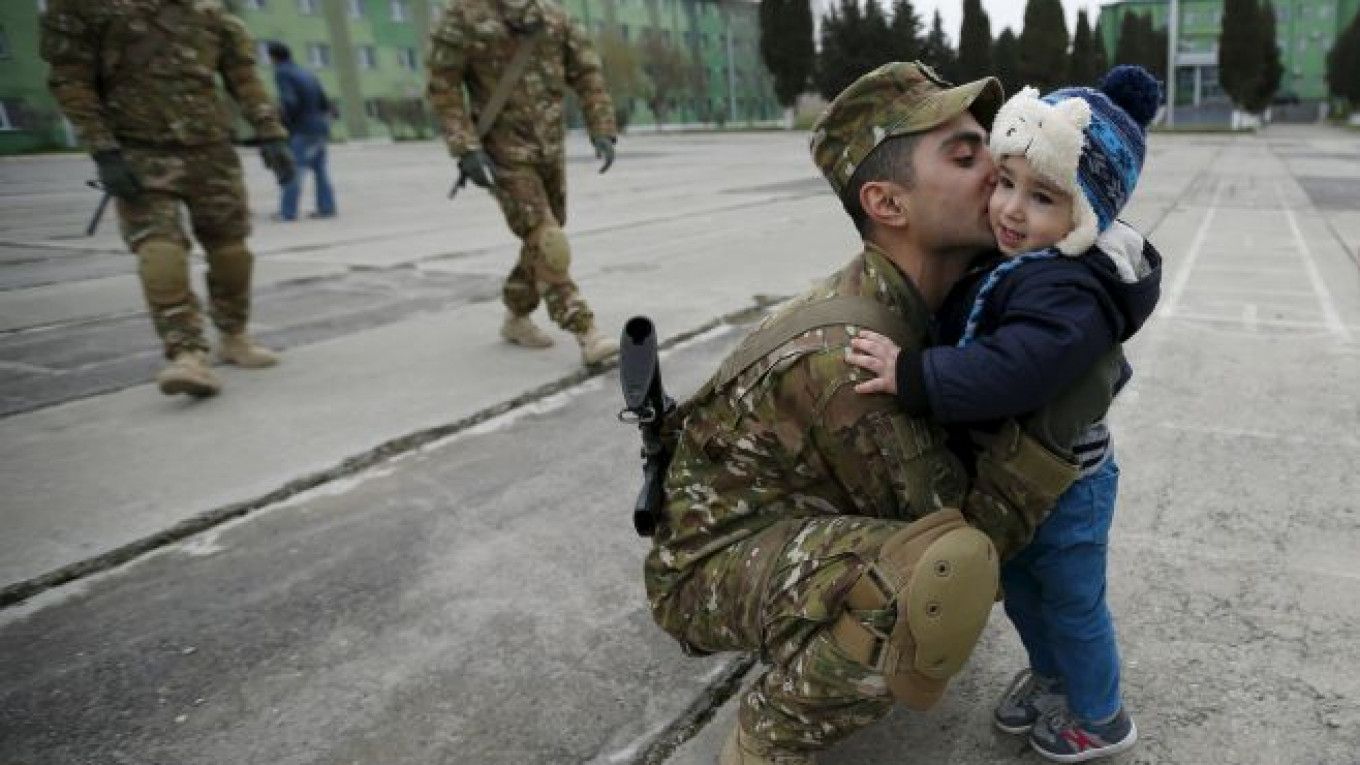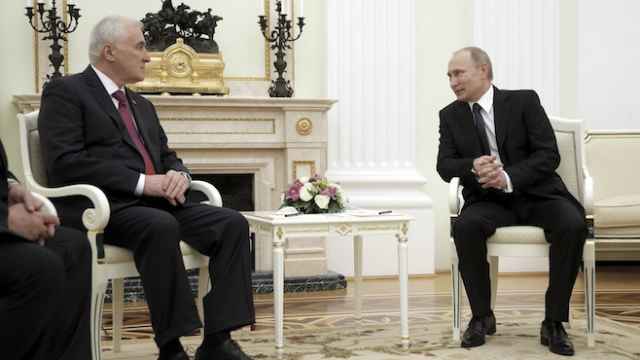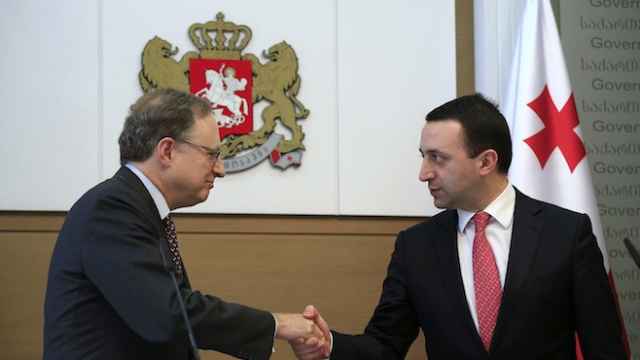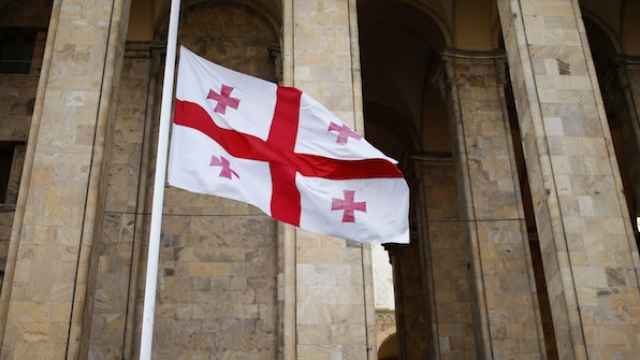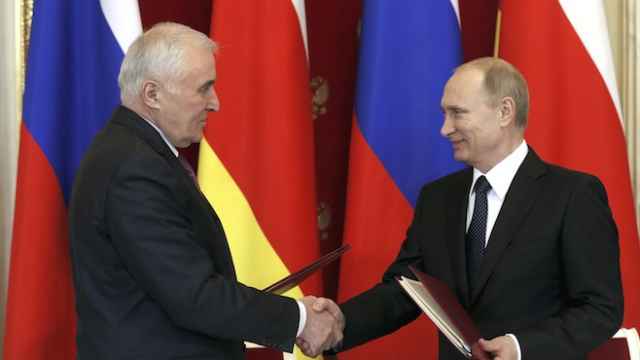Georgian President Georgy Margvelashvili said on Tuesday that Russia poses a threat to regional security and that its action in Georgia and Ukraine is punishment for their pro-Western stances.
Russia's forces drove deep into Georgia during a five-day war in 2008, and it has signed deals with the Georgian breakaway republics of Abkhazia and South Ossetia that almost entirely integrates their militaries and economies with Russia's.
"The occupation and militarization of a part of Georgian territory increases the threat of destabilization in the South Caucasus and Black Sea regions, and therefore the Russian Federation poses a serious problem for our security," Margvelashvili said in an annual address to parliament.
"Occupation of Georgian territories in 2008, war in Ukraine in 2014 and support of separatists in Transdnestr is nothing but ... Georgia's, Ukraine's and Moldova's punishment by Moscow for their European choice," he said.
Despite attempts by Moscow and Tbilisi to improve ties after a change of government in Georgia in 2012, they have failed to restore diplomatic relations.
Margvelashvili's comments were not only the strongest since he was elected in 2013, but go further than those of Georgia's prime minister, Irakly Garibashvili, who has been accused by the opposition of being reluctant to criticize Georgia's former overlord.
The prime minister is the most important figure constitutionally, but the president's comments highlight a rift in the country's leadership.
Margvelashvili said his country's future was linked to the European Union and NATO and called on Georgia's Western partners to support its efforts to improve ties with Moscow.
"Georgia's security and well-being is linked to the European and Euro-Atlantic integration ... It's very important to increase the role of the European Union and the United States in resolving conflict between Georgia and Russia," he said.
Georgia, which is on a transit route for Caspian oil and gas to Europe, signed an Association Agreement with the European Union last June and expects a visa-free regime with the EU to be allowed after the EU summit in Riga in May.
Georgia's ambition of joining NATO has effectively been on hold since the 2008 war, but the Ukraine crisis has put back on the agenda the question of whether the nation of 4.5 million people might eventually be admitted into the Atlantic alliance.
"Everyone should understand that our cooperation with NATO is not aimed against anyone," Margvelashvili said.
A Message from The Moscow Times:
Dear readers,
We are facing unprecedented challenges. Russia's Prosecutor General's Office has designated The Moscow Times as an "undesirable" organization, criminalizing our work and putting our staff at risk of prosecution. This follows our earlier unjust labeling as a "foreign agent."
These actions are direct attempts to silence independent journalism in Russia. The authorities claim our work "discredits the decisions of the Russian leadership." We see things differently: we strive to provide accurate, unbiased reporting on Russia.
We, the journalists of The Moscow Times, refuse to be silenced. But to continue our work, we need your help.
Your support, no matter how small, makes a world of difference. If you can, please support us monthly starting from just $2. It's quick to set up, and every contribution makes a significant impact.
By supporting The Moscow Times, you're defending open, independent journalism in the face of repression. Thank you for standing with us.
Remind me later.


